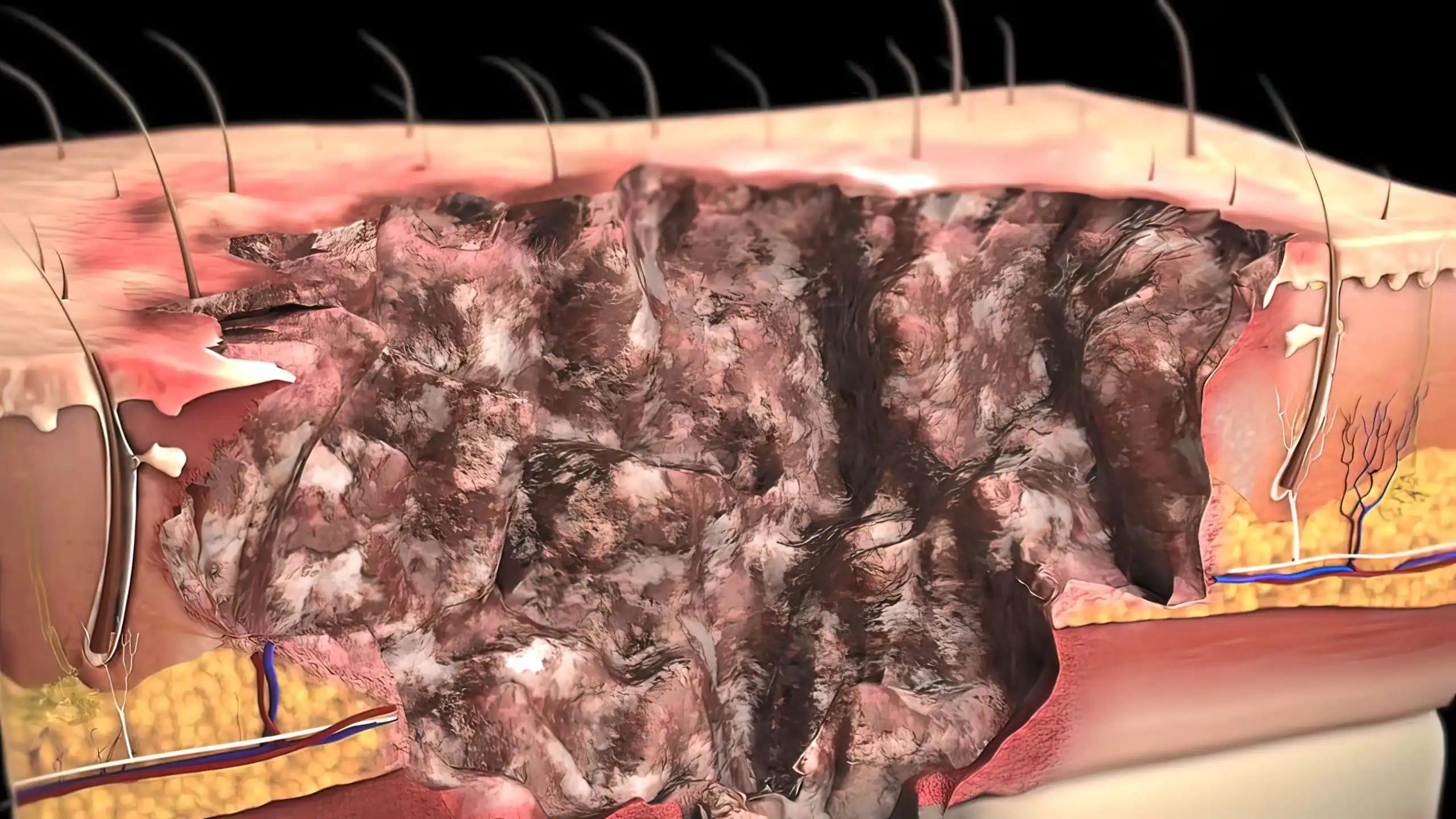KEY TAKEAWAYS
- TROPHY-U-01 (NCT03547973) is a multicohort, global, open-label, phase 2 study aimed to evaluate SG in patients with unresectable locally advanced or mUC.
- The study used 10 mg/kg SG, days 1 and 8 of 21-day cycles.
- Using a Simon two-stage design, the study cohort had 90% power to reject ORR≤12%.
- TROPHY-U-01 cohort 1 interim results showed a 29% objective response rate with a median PFS of 5.4 months.
- Results showed manageable toxicity with key grade ≥3 treatment-related adverse events.
- SG may be a treatment option for mUC, and supports a randomized phase III trial.
Patients diagnosed with metastatic urothelial carcinoma (mUC) exhibit restricted therapeutic alternatives following disease progression on programmed death-ligand 1 (PLT) and immune checkpoint inhibitors (CPI). SG is an antibody-drug conjugate comprising a humanized IgG1 kappa anti-Trop-2 monoclonal antibody conjugated to SN-38 using a distinctive hydrolyzable linker. The interim results of cohort 1 of TROPHY-U-01, which included 35 participants, indicated an objective response rate (ORR) of 29%. The FDA has granted fast-track designation for SG (TRODELVY™) in metastatic urothelial cancer. The TROPHY-U-01 (NCT03547973) is a phase 2 study that is multicohort and global. It is an open-label study that aimeds to evaluate the clinical activity of SG (10 mg/kg, days 1 and 8 of 21-day cycles) in patients who have unresectable locally advanced or mUC with measurable disease, ECOG PS 0–1, and creatinine clearance ≥30 mL/min. The first cohort of the TROPHY-U-01 phase 2 study included patients with metastatic urothelial cancer who had progressed after receiving platinum and checkpoint inhibitor therapies. The primary goal of the study was to evaluate the objective response rate (ORR) through central review, while secondary objectives included progression-free survival (PFS), overall survival (OS), duration of response (DOR), and safety. The cohort was designed using a Simon two-stage method, which provided a 90% chance of rejecting the null hypothesis that the ORR would be less than or equal to 12%.
A total of 113 patients were included in the study, with a majority of 78% being male. The median age of the patients was 66 years, and 72% had an ECOG PS of 1. The Bellmunt score was 0 in 12% of the patients, 1 in 54%, 2 in 27%, and 3 in 6%. Visceral metastases were present in 62% of the patients. The median number of prior therapies received by the patients was 3. The central review has verified that the overall response rate (ORR) is 27% (31 out of 113 patients; 95% confidence interval [CI] 19-37), comprising 6 complete responses and 25 partial responses. The ORR in patients with liver metastases is 25% (95% CI 11.5-43.4). The median response duration was 5.9 months, with a 95% confidence interval ranging from 4.7 to 8.6. The clinical benefit rate was 37%, with 42 out of 113 patients experiencing it. The patient’s median progression-free survival (PFS) and overall survival (OS) were 5.4 months (95% confidence interval [CI] 3.5-6.9) and 10.5 months (95% CI 8.2-12.3), respectively. The predominant grade ≥3 adverse events associated with treatment were neutropenia (35%), anemia (14%), febrile neutropenia (10%), and diarrhea (10%). No ocular toxicity, neuropathy, or interstitial lung disease of grade >2 was observed due to the treatment. There was one mortality event that was associated with the treatment, specifically neutropenic sepsis. The patient exhibited significant effectiveness with tolerable adverse effects. The aforementioned findings validate the interim results and propose that SG could be a viable therapeutic alternative for mUC. Furthermore, they endorse the need for a randomized phase III clinical trial.
Source:https://oncologypro.esmo.org/meeting-resources/esmo-virtual-congress-2020/trophy-u-01-cohort-1-final-results-a-phase-ii-study-of-sacituzumab-govitecan-sg-in-metastatic-urothelial-cancer-muc-that-has-progressed-after
Clinical Trail: https://clinicaltrials.gov/ct2/show/NCT03547973
Y. Loriot, A.V. Balar, D.P. Petrylak, S.T. Tagawa, A. Rezazadeh, A. Fléchon, R. Jain, N. Agarwal, M. Bupathi, P. Barthélémy, P. Beuzeboc, P.L. Palmbos, C.E. Kyriakopoulos, D. Pouessel, C.N. Sternberg, Q. Hong, T. Goswami, L.M. Itri, P. Grivas/TROPHY-U-01 cohort 1 final results: A phase II study of sacituzumab govitecan (SG) in metastatic urothelial cancer (mUC) that has progressed after platinum (PLT) and checkpoint inhibitors (CPI)/Annals of Oncology (2020) 31 (suppl_4): S1142-S1215. 10.1016/annonc/annonc325



